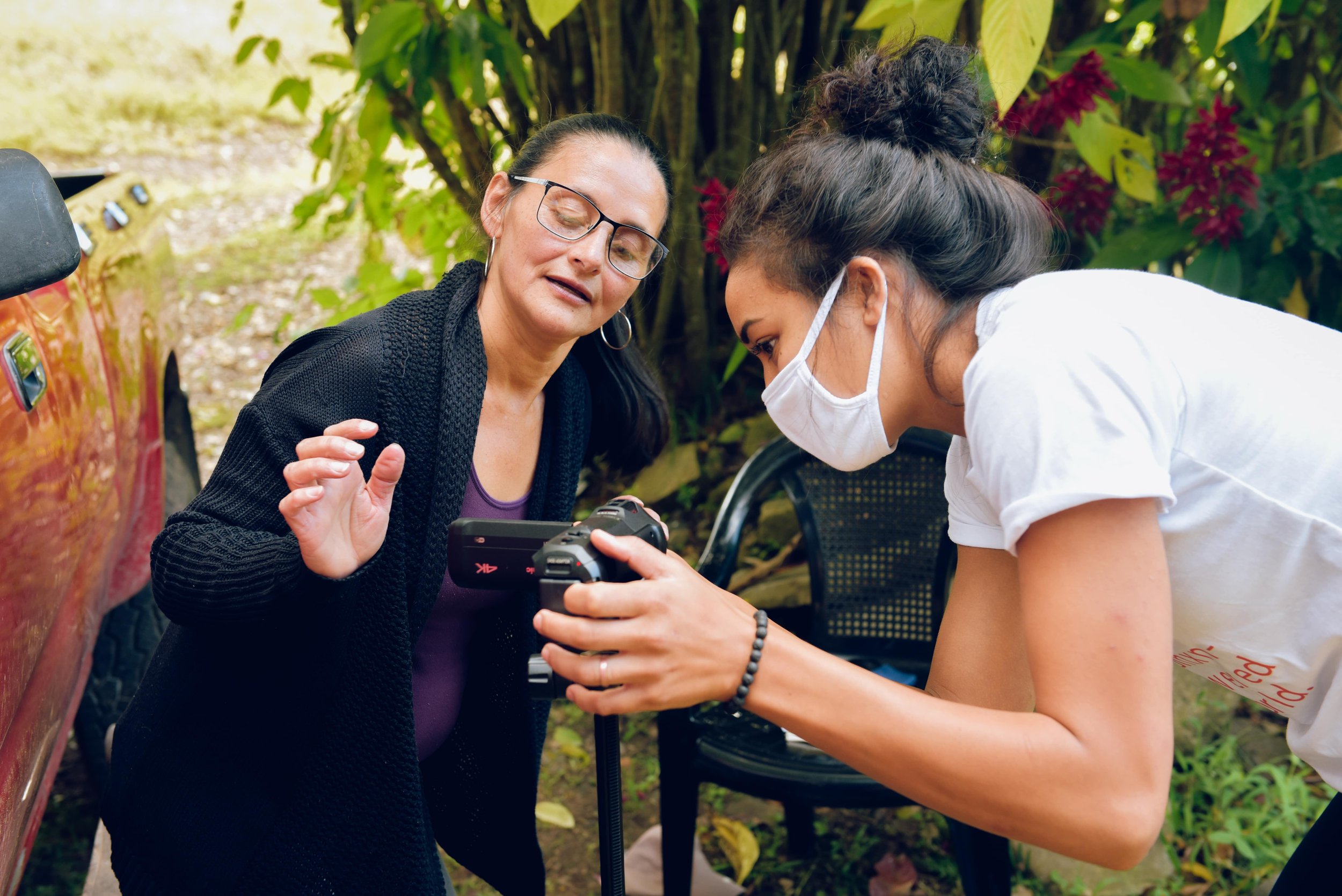Stronger Than Coffee: Part I
Bean Voyage x Needle & Frame:
In conversation with Emma Whitehead of Needle and Frame
For over a year, Bean Voyage has been collaborating with Needle & Frame, a filmmaking collective, to create a series of short films, all filmed by women smallholder coffee producers in Costa Rica. This week, we spoke to Emma Whitehead, co-founder and senior producer at Needle & Frame, about how the project came about, and what we can expect.
Can you tell us a bit about the project?
“We are a filmmaking and arts collective, specializing in participatory media which puts the tools of storytelling into the hands of the people telling the story. We’ve been remotely working with this group of coffee farmers for the last year, giving them a bespoke training curriculum on storytelling and technical filming abilities. They have been self-documenting their lives, and we’re now working on editing the content they have produced. So, at Needle & Frame, we have been providing them with the creative, technical, artistic side, working in tandem with Bean Voyage to facilitate this programming to the community.”
What is the origin of Needle & Frame?
“Needle & Frame is the culmination of many years of working organically as disparate people on different film projects, finally coming together under one organization. The founding group of Needle & Frame has been working together for almost 5 years now on different film projects. Gayle Nosal, who is a documentary director and one of our co-founders, made a feature-length documentary film, Sauti, which followed five women in a refugee settlement in western Uganda through their secondary education. She was implementing participatory elements into documentary production before it became more of a mainstream technique. Gayle also partnered with an organisation in Uganda which was focused on participatory storytelling. We started working together after Sauti, on the distribution plan, screenings, community-building and fundraising for the women participants. We then collaborated again on another film Gayle was making, about wolf preservation and the people who take care of endangered wolves on the western slopes of Colorado. So, it was a very organic process of partnering with communities, culminating in Needle & Frame being formed as an organisation, in a more concerted effort to create a platform for artists of all kinds.”
How did the idea for collaborating with Bean Voyage come about?
“We already had some connections with Bean Voyage, and we heard some of their partner producers were curious about using their stories for advocacy and visibility, and that there was a desire to learn more about storytelling and filmmaking. Right at the beginning of the pandemic, we had some preliminary conversations and, given that travel was not possible, film production as an industry was very much down at that point. We started by talking to Bean Voyage and their partner producers, asking about their lives, their needs, their hopes for a storytelling project, and what kinds of skills they wanted to develop. The relationship developed very organically, and as we began to realize that COVID would be around for a while, we decided to send cameras to Costa Rica. We developed a bespoke training program for the group of producers and started meeting weekly on Zoom with them to offer them the tools for making self-directed films. Once they started filming, we were able to organize one outdoor, masked, socially distanced training session, and Bean Voyage’s team went on to implement some of the programs on the ground. So, it’s been a collaborative effort, and really a big experiment, producing films virtually during a pandemic.”
What have you learned about the coffee sector through the process?
“Before this project, I barely knew anything about the coffee sector! And this is the beautiful thing about this kind of work: you collaborate with an organization and with people who have so much knowledge about a topic in which most people in the world passively participate every day by drinking coffee. There is so little connection to the process of producing coffee. So, I’ve learned a lot not just about coffee itself, but about Costa Rica, the lives of these women, and the care they put into making this drink with which the whole world interacts every single day.”
Have there been any unexpected outcomes?
“It’s hard to say what has been most surprising because the whole process has been a reimagination of how production normally takes place. It’s been a great co-creation, an iterative process of saying, ‘This is what we’re thinking, how is it working for you? What would you like to learn? What should come next?’. I suppose I didn’t expect the project to become so robust, but it has really blossomed thanks to the engagement of the producers.”
What do you hope people will take away from the film?
“The stories that I have got to know are so special, and having a connection not just to the world of coffee, but to the perspectives of these five women as individuals is very powerful and special. My hope is that those people who the producers feel would benefit from hearing their stories are impacted, engaged, and inspired. Aside from that, my hope is that the producers see that the world is interested in and cares about their stories. It would be wonderful for the films to get a wide audience, and to spark conversation on not only what it means to be a woman in coffee, but also what it means to make self-documented films and to put the tools for storytelling in the hands of the people living the story. But for me, it has to be all about the producers: at Needle & Frame, we’re just the supporting act!”
How has the experience been of undertaking this project during the pandemic?
“We have been really lucky that everyone involved has good connectivity, and that we were able to implement the project virtually. The fact of having a strong partnership with Bean Voyage on the ground was also essential. The less unique answer would of course be Zoom! We designed the project so that it would open community space for learning and developing skills, allowing producers to go and experiment on their own, and then come back to the group and evaluate their progress together. The producers have really been each other’s best support in this whole process, constantly learning from each other and going through the experience together.”
What’s next?
“We’re thinking of creating a longer-form documentary highlighting the intersection of climate, gender and coffee, but it’s very much in the idea stage! I’m also excited to see the life these films have once they’re out in the world. There’s a ripple effect when you make films like these: while there’s the tangible, technical component of the films, there’s also this larger effect, creating a long-lasting community. We’re now working with schools in Costa Rica and building sustainable ways of telling stories, where there continues to be an impact for the people who have lived them.”
And, finally, how do you take your coffee?
“Black. I use a French press to make my coffee in the morning and try not to get too jittery!”
Learn how you can get involved in the project by visiting this page!
Written and Interviewed by Alice Mee.
Edited by Kayla Sippl.


